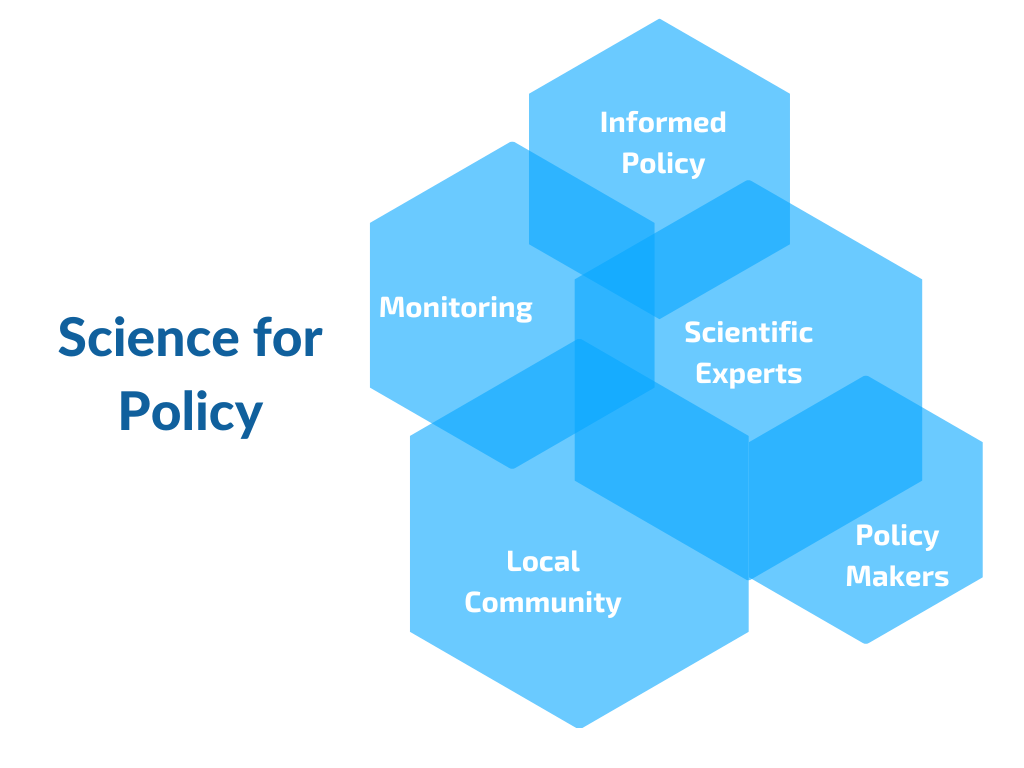The challenges experienced in the world today are diverse and extreme and often result in unexpected impacts on humanity. Scientific research reveals the much-needed evidence for informing and improving development policies. However, scientists who contribute to policy are most effective when they have clear goals and a strategy for achieving them. Therefore, every scientist must now consider science’s role in policymaking. Science can influence policy in two ways:
- By improving policies that influence science (policy for science)
- By improving policies that can benefit from scientific evidence or understanding (Science for policy).
It goes without saying that 2020/2021 was a year of revolution in science. The general public gained great milestones towards accepting and using scientific outputs for decision-making. Besides the statistics of COVID-19 warning the general public about the outcomes of the pandemic, it created an awareness about the work of scientists.
How does science influence policy?

The science community in the world today are concerned with contributing to policy through either policy for science or science for policy. The scientists attempt to influence policy by providing information through the education of policymakers. Another approach often utilised is by championing specific scientific outcomes, for example, using persuasive arguments or offering incentives towards policy goals.
The best approach for contributing to local policies is for the scientist to target their scientific findings to ongoing development agendas. For example, one can review the county’s Annual Development Plans (ADPs) to identify scientific gaps.
For example, a county project to expand drinking water supplies in an arid region can trigger the following scientific gaps.
- Where are the groundwater resources located?
- Is the water quality suitable for human consumption, and is the water available in sufficient quantity?
Therefore, a scientist can investigate the above gaps and inform the respective county of the findings. The findings must also be packaged appropriately for easy understanding by the non-scientific community.
Not only will the county administration pay attention to the results, but a need for collaboration in the development of the related water supply policies can arise. In other words, scientists must identify the primary development goals as an entry point to building successful collaboration with policymakers.
Major setbacks to Science for Policy in Developing Countries
Developing countries, such as those in sub-Saharan Africa, are the least dependent on scientific outputs. This differs in developed worlds where scientific findings trigger or inform specific development decisions. In developing countries, however, governments and development institutions are concerned with environmental challenges, high poverty levels and low levels of education affecting their populations.
In such regions, scientists report a lack of monitoring as a major setback to obtaining reliable data for improving scientific understanding of the underlying challenges. We must accept that monitoring is not widely acknowledged as a priority for most regional governments. Limited financial resources are often diverted to ever-growing climate change challenges and other development agendas to improve the local economies.
In fact, there is a low acceptance that investment in scientific monitoring programs or regional studies could lead to better investment goals. In such cases, science for the policy must aim at undertaking monitoring, regardless of the research scale, to form a reliable baseline for future investigations.
UNESCO Inclusive Policy Lab provides free online course on science for policy approaches in the modern world in case you would like to learn more about this subject.
We are very excited to discuss further and help you identify the entry point to impacting policy in your project.